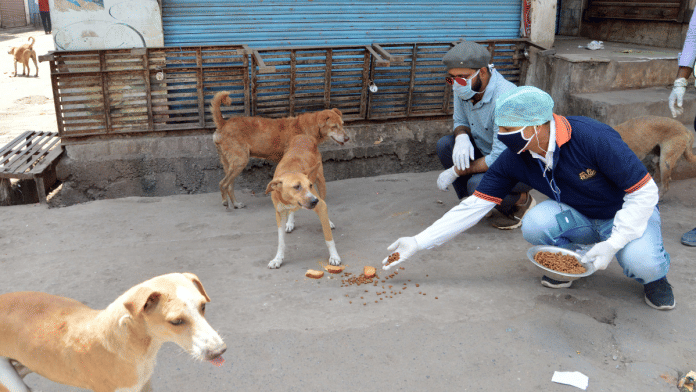New Delhi: As many as 79 per cent of respondents in a pan-India survey felt that attacks by stray dogs were common in their localities, up from last year’s 61 per cent.
A similar percentage of respondents were of the opinion that municipal authorities in their area are ineffective when it comes to carrying out inoculation and transferring strays to animal rescue centres, as well as registering pets.
Only 7 per cent believed that the municipal authorities effectively manage both stray and pet dogs, according to the survey carried out by LocalCircles.
The study gathered over 53,000 responses from residents — 67 percent men and 33 per cent women — in 326 districts. While 44 per cent of the surveyed were from Tier 1, 34 per cent and 22 per cent were from Tier 2, and Tier 3 & 4 districts.
In 2021, the State of Pet Homelessness Index data estimated that there were about 6.2 crore stray dogs and 91 lakh street cats in India.
Over 45,000 dog bite cases, mostly by strays, were reported in Delhi in the last six months, the LocalCircles release said.
According to data presented by the Centre in Parliament during the monsoon session last year, Tamil Nadu, Maharashtra, West Bengal, and Gujarat had the highest incidences of stray dog bites. Uttar Pradesh has the most stray dogs, followed by Odisha, Maharashtra, and Rajasthan, it added.
What the report states
The survey to quantify citizens’ experiences and concerns, as well as to identify specific solutions to the stray dog bite problem, found that only 10 per cent said their municipal corporation or local body was effective at stray dog management. This percentage was the same in the last survey, the report added.
“While some local bodies have made registration of pets mandatory, the enforcement of the same is near zero. Noida, for instance, is one city where cases of pet dog bites and stray dog bites are regularly reported but corrective action by the authorities is completely missing,” the LocalCircles release said.
As a next step, 71 per cent of respondents agreed that the issue of stray dogs and animals must be addressed on a mission basis, and that the Swachh Bharat Mission should provide resources for this purpose as well as make Stray Animal Management a criterion in ranking cities and local governments.
The cash should be made available and used in creating stray animal facilities in each area, as well as developing stray animal hotlines and pick-up infrastructure, the survey found.
The Ministry of Animal Husbandry, in collaboration with the Animal Welfare Board of India, has reached out to states to enlist the assistance of local self-governments (LSGs) and Resident Welfare Associations (RWAs) in implementing the new set of Animal Birth Control Rules, which were notified on March 10, 2023, in an effort to shift the burden of maintaining and controlling the stray dog population onto them
(Edited by Tony Rai)
Also Read: RWAs of Indian cities have declared a war on dogs. Pet lovers are on the back foot






